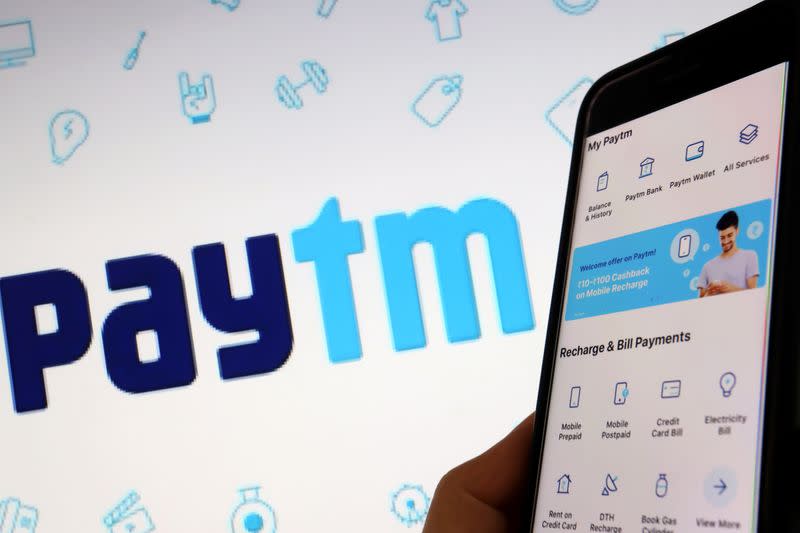Factbox-Paytm: from humble facilitator to embattled fintech giant

BENGALURU (Reuters) - One of India's most popular payments companies, Paytm, is facing its biggest crisis after the country's central bank ordered its banking unit to stop accepting fresh deposits from March, leading to sharp fall in its shares.
Paytm plans to take steps immediately to comply with the Reserve Bank of India's directions, but the move raises concern that its lending partners might reconsider their relationship with the firm, stalling its efforts to attain net profitability, analysts said.
THE BEGINNING
Founded in 2010 by current top boss Vijay Shekhar Sharma as a pre-paid mobile and television bill payment platform, the company expanded to facilitating online instant payments through the Unified Payments Interface (UPI), with the payments business since becoming its largest source of revenue.
The company rose to fame when India banned high-denomination notes in 2016, leading to an emphatic rise in online transactions, where Paytm was a key player.
EARLY SUCCESS, IPO LAUNCH
The digital transformation of India's payments system garnered Paytm attention and investment from the likes of Chinese fintech firm Ant Group, Chinese e-commerce giant Alibaba, and Japan's Softbank Group.
That gave Paytm the confidence to go public in November 2021.
Paytm's IPO launch was one of the worst stock market debuts India had seen to that point, raising questions about its lack of profit and its lofty valuation.
The stock trades currently about two-thirds below its listing price.
PAYTM'S SUPPORTING CAST DISAPPEARS
The disappointment was followed by its investors marching for the exit, amid broader concerns about Chinese ownership in Indian financial technology companies.
Alibaba and Softbank gave up their stakes in Paytm last year, with Alibaba selling its entire holding and Softbank trimming it through open-market deals.
Vijay Shekhar Sharma, who dropped off Forbes' billionaire list in 2023, became its largest shareholder in August last year after buying a chunk of Ant Financial's stake. He also owns a 51% stake in Paytm Payments Bank.
Ant Financial and Softbank hold 9.89% and 6.46% stakes in the company respectively, according to stock exchange data as of December 2023.
HOW DOES PAYTM MAKE ITS MONEY?
Paytm has two major sources of revenue - its merchant payment business and loan business. Merchant payments constitutes roughly 60% of total income and loans account for about 20%.
The fintech company charges merchants a platform fee to use Paytm's payment gateway, among other subscription-based services and products such as a soundbox and card swipe machine.
It also provides loans under partnerships with some banks and non-bank financial companies, taking a cut of the interest. Paytm Payments Bank was one of these entities through which it provided loans.
(Reporting by Varun Vyas in Bengaluru; Editing by Dhanya Skariachan and Jan Harvey)


